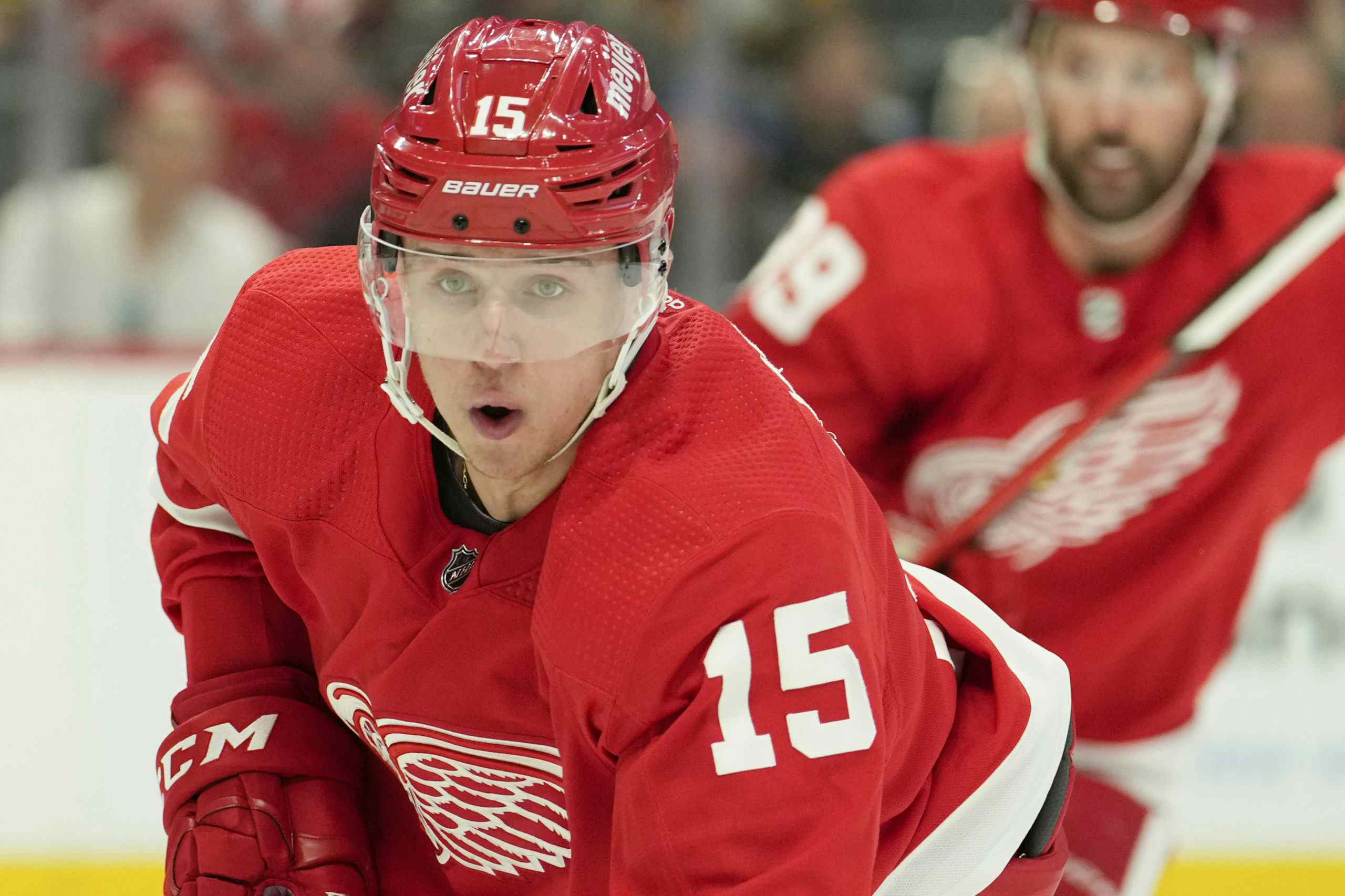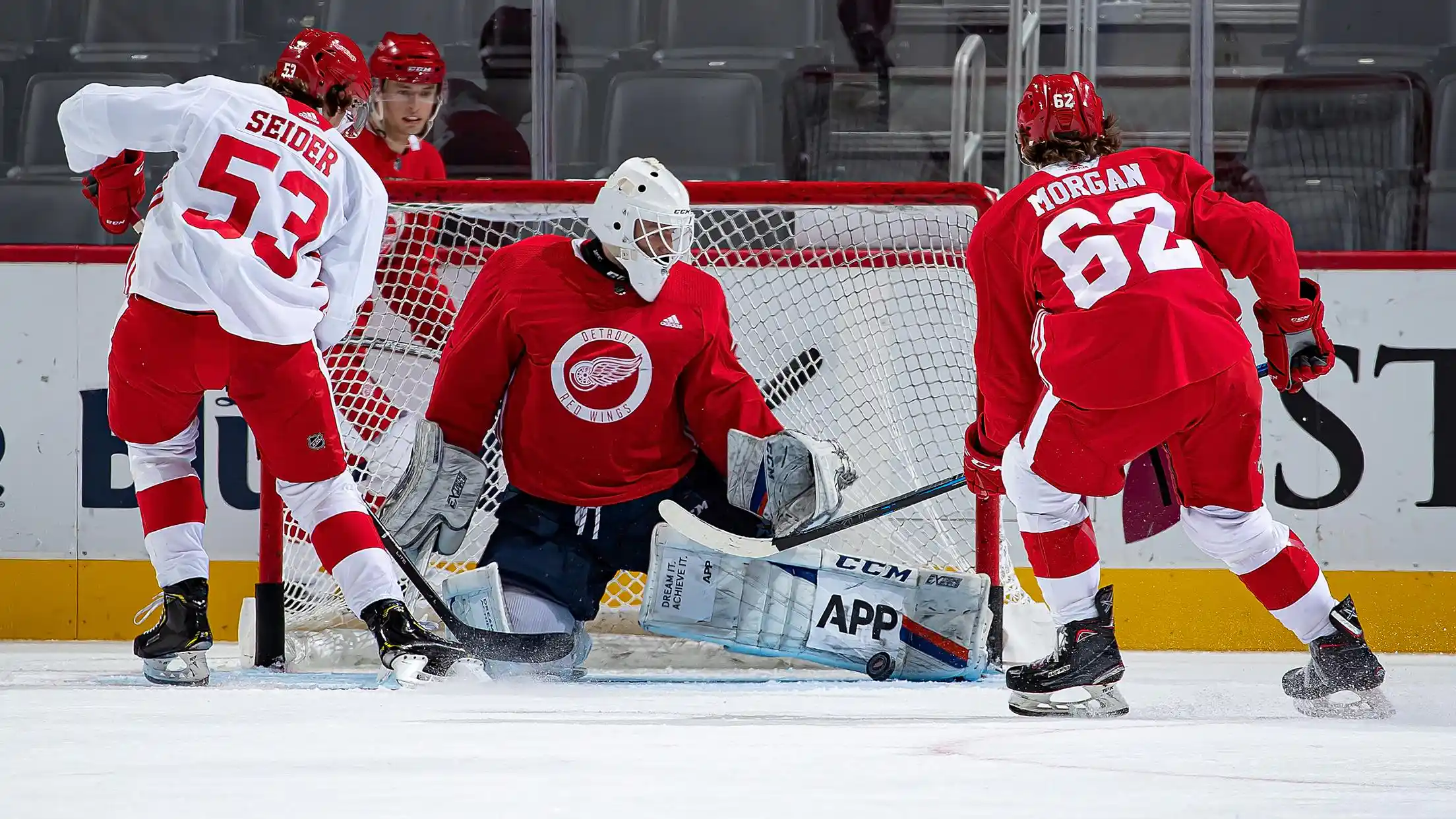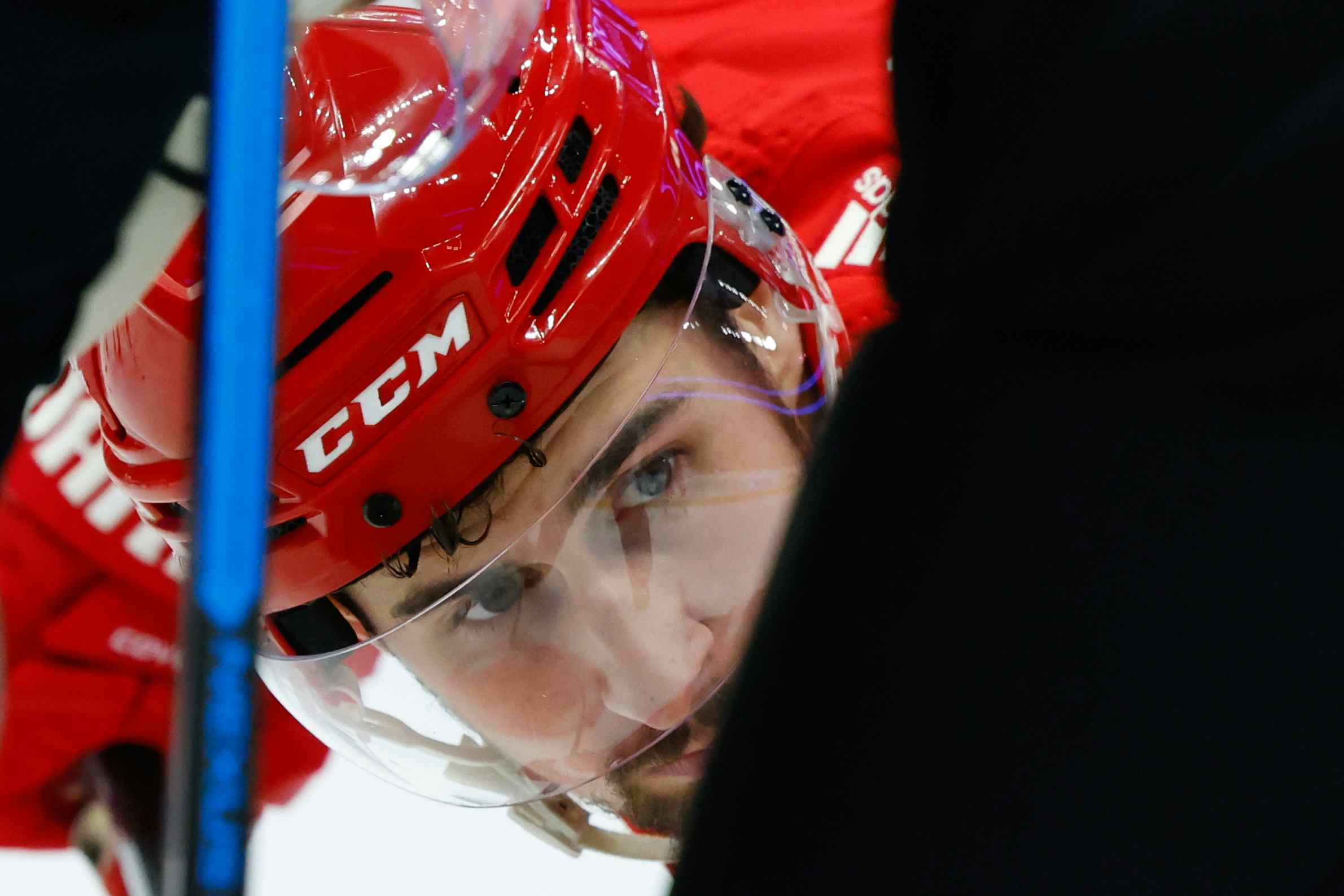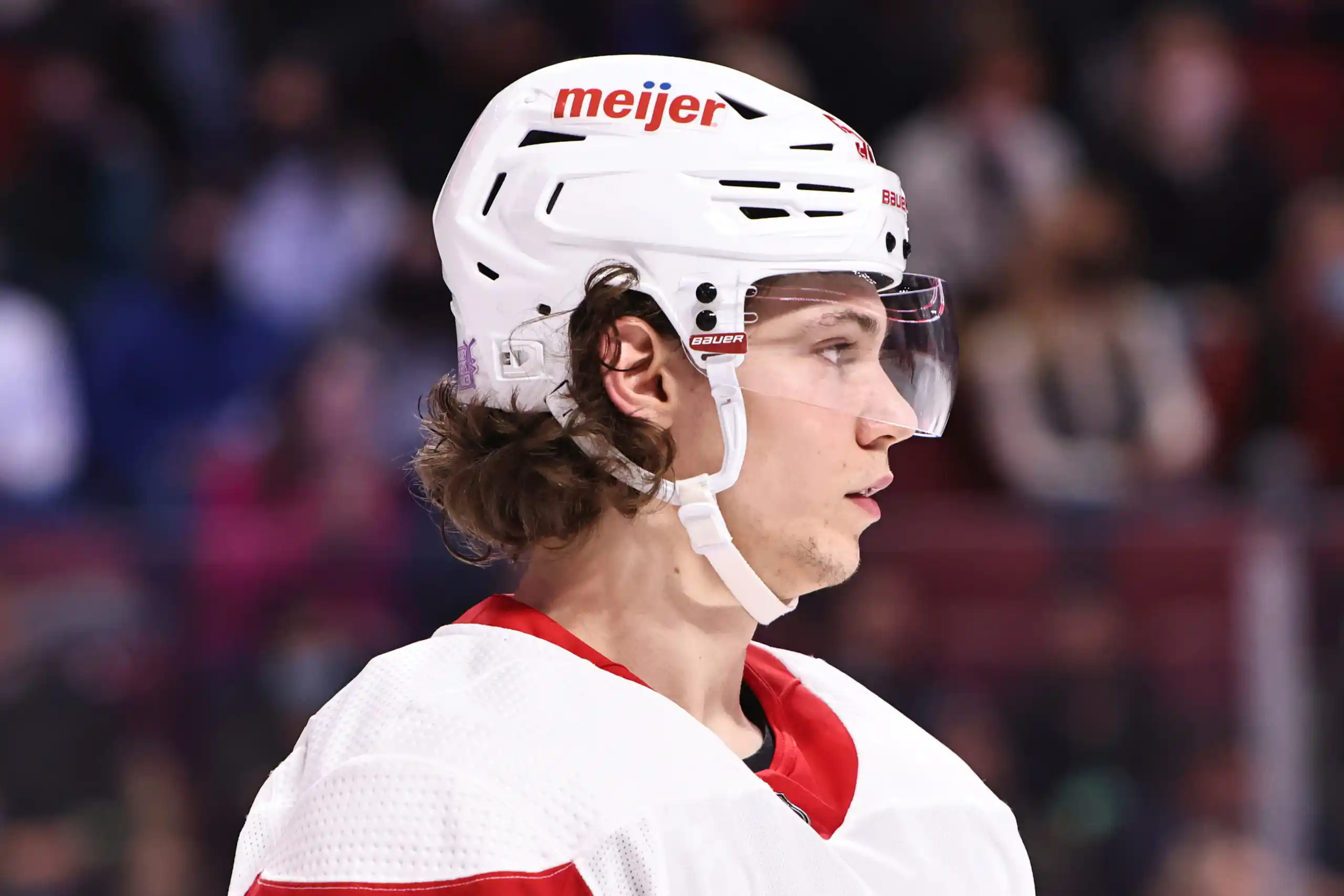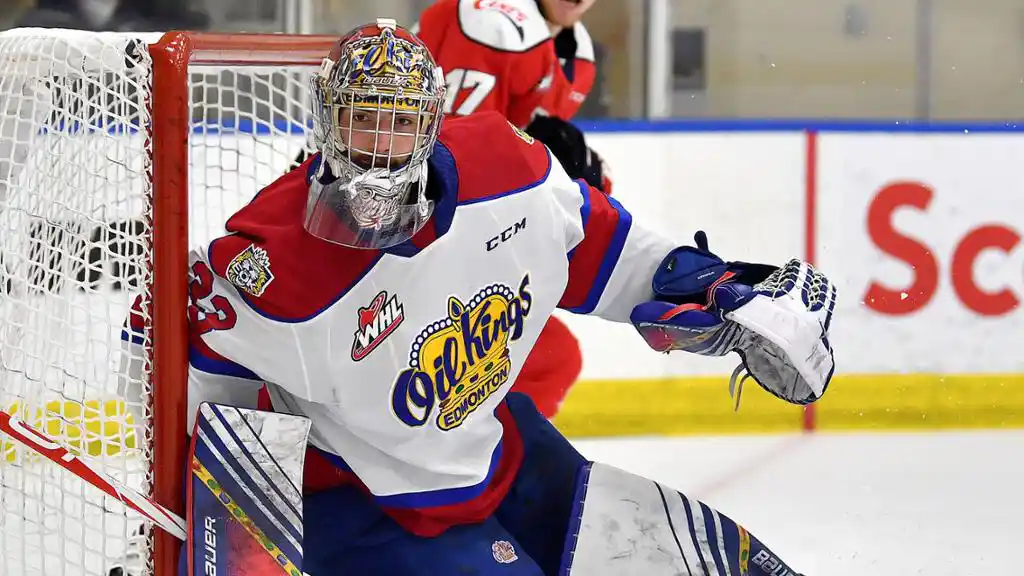On Arsenal, the Red Wings, and conservative sports management
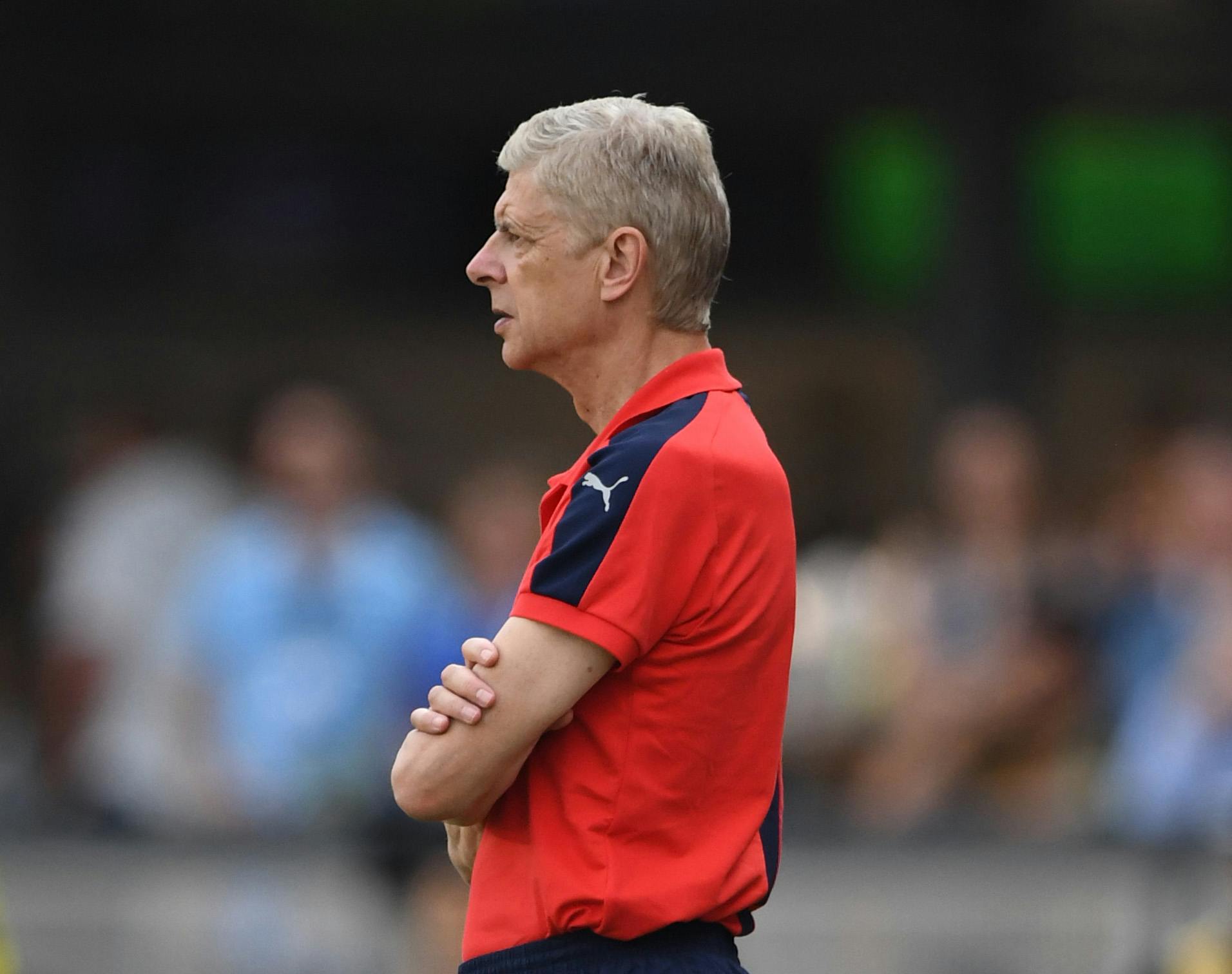
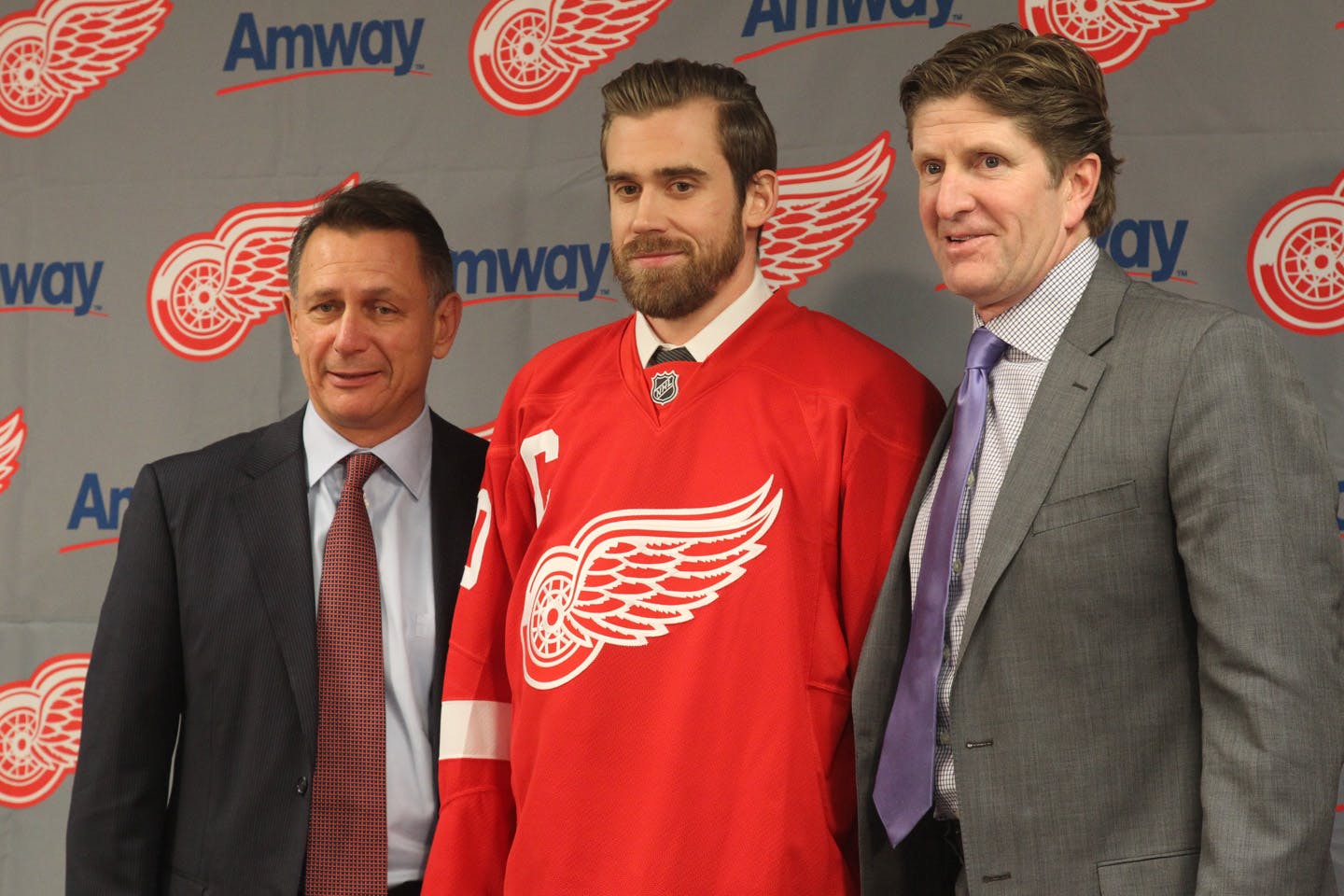

As much as many North Americans don’t want to admit it, soccer and hockey, at their cores, are two very similar sports.
Both rely on scoring into a net past a goaltender, which is a rarity in many sports. Both require a deep lineup to succeed, unlike a sport like basketball where a solid 3-4 players (sometimes even just 1-2) can make up for a lack of depth.
Both of these sports have the same generic strategy in mind – create as many scoring chances as possible while preventing as many as possible for the other team, and you’ll put yourself in a position to win.
And both are often decided by some degree of random chance – despite your team’s best effort, there will be some games where you dominate possession and scoring chances and lose, because the world is a cruel place, or because you hit the post, or mis-hit your shot by a millimetre on an open net.
However, if you create a consistently great team, you’ll win more games than you’ll lose, and you’ll more likely than not be rewarded with a trophy at the conclusion of the season. Perhaps not every year, but if you do things consistently the right way, the rewards should – and usually do – come eventually.
There are Cinderella success stories, of course, but it is the consistently great teams which are awe-inspiring, and hope-inducing within a fan base when things go wrong.
The consistent teams are the ones to look up to, we’re told, as they do things the “right” way. The championships, the dynasties, the players who become immortals simply for their unforgettable performances, are all cultural icons, memories to hold onto forever for fans. And sometimes, things don’t work out. But because these teams are so great, they usually find a way to remain competitive, one way or another.
But what happens when there’s a self-love affair that lasts too long? A clinging onto the ways (and sometimes the people) of the past that hampers the team’s ability to change and adapt to the modern game?
What happens is predictable: there’s a transformation from a great team to just a good one. Expectations remain high, but performance stagnates and decreases over time. As the rest of the league is getting better, there’s always teams that just stay the same, which eventually translates to being even worse.
There is a near-perfect comparison two that exists between a duo of hockey and soccer franchises: the Detroit Red Wings and Arsenal. The Red Wings are the Arsenal of the NHL, and Arsenal is the Red Wings of the Premier League.
It’s a comparison that’s developed over time, as these teams have experienced both the highs and well, the mediums of their sport. Both teams have been consistently great, but are now both stuck in a weird buffer zone of mediocrity with no clear direction out.
Perhaps you don’t follow the English (officially the Barclays) Premier League, or soccer at all besides catching the odd World Cup game. That’s fine. You should, though. Club soccer is a fantastic beast that is both similar and different to the NHL, with passionate rivalries, intense matchups, hatred of refs, discussions on if scoring is too low, and down-to-the-wire drama.
Arsenal (officially Arsenal Football Club), exists in a similar universe to the Wings: they’re one of the most consistently successful, well-supported, and well-respected teams. They play in North London in the league’s second largest stadium, and have won 13 league titles, most recently in 1998, 2002, and 2004, which ranks third-most, all-time.
Detroit, as we all know, has a large fanbase as well. They’re probably the closest thing to a modern dynasty, with Stanley Cup wins in 1997, 1998, 2002, and 2008 (and 11 overall, which is… third most all-time).
In 2005, a year removed from being champions, Arsenal finished 2nd in the league. In 2009, Detroit lost in the Stanley Cup Final to the Pittsburgh Penguins. Neither franchise showed any major signs of decline then.
However, in a time of major change in the two leagues, both clubs have failed to adapt. Since then, they’ve fallen from yearly contenders to teams that perennially are good in comparison to the rest of the league, but not good enough to be seriously considered for a championship.
And it’s predictable why. The people, ideas, and decisions, have largely remained the same over the past two decades.
The streaks
Two streaks tie these fanbases together more than anything else.
There’s been plenty of talk about the Wings making the playoffs 25 years in a row. It’s what they’ve been known for across the league- a near-guarantee at the start of every season to make it into the postseason. Until, of course, this year, they didn’t even come close.
In the Premier League (and virtually every major non-North American League), playoffs only exist in cup competitions, the biggest of these being the UEFA Champions League to decide the European champion. In England, it’s traditionally the top-4 teams (out of 20) that qualify for the competition that takes place during the following season. Arsenal, like Detroit, is a near-certainty to make it every season.
Since winning the title in 2004, Arsenal has finished: 2nd, 4th, 4th, 3rd, 4th, 3rd, 4th, 3rd, 4th, 4th, and 3rd, in that order. Currently, they sit 6th, 6 points back of Manchester City with 5 games to play (and a game in hand). It’s possible they’ll squeak into the top-4, but Sportsclubstats pegs their chances of doing so at a little over 9.1%.
Additionally, Arsenal has qualified to the knockout stages of the Champions League (which requires finishing top two out of four teams in the group stages, a home-and-away round robin.) every season since 2001, a feat unmatched by even the sports’ biggest teams. In 2006, they fell in the final to FC Barcelona, who were just at the beginnings of building a dynasty under a certain Lionel Messi.
They’ve certainly been successful and unique in that success, in that they’re a staple team to be among Europe and England’s best. But the past five years? They’ve been knocked out in the round of 16, the first step of the knockout stages, every single time. The Wings? Well, they’ve fared not a whole lot better, as they’ve won one series in the past six seasons.
Arsenal was thrashed 10-2 this year in the Round of 16 by Bayern Munich over the two-legged contest, being severely outclassed both home and away. In Detroit’s last playoff berth, they were quickly bounced in five games by the Tampa Bay Lightning. Though the 12-9 scoreline over the course of that series was a little more respectable, few pundits gave the Red Wings, who entered the playoffs with a negative goal differential, much of a fighting chance.
Ken Holland as Arsene Wenger
There perhaps has never been a more apt comparison between two sports executives. Ken Holland assumed power of the Red Wings in July 1997 as general manager. Arsene Wenger took the reigns of Arsenal in September 1996 as manager.
The Premier League was still one of the world’s top soccer leagues, competing with the like of the Spanish La Liga, Italian Serie A, and the German Bundesliga, but for many years the only thing that really mattered was the on-field product. Mass sponsorships, TV deals, worldwide reach and marketing campaigns were around the corner, but Major changes were to come to the Premier League, Arsenal, and soccer as a whole over the next 20 years, but there was a level of innocence that was present in the 1990s and before that seems lost now with an over-marketization of soccer and pro sport in general.
Wenger’s earned the nickname Le Professeur over the years, for his meticulous management style. His accomplishments are many at Arsenal: a three-time Premier-League champion as a manager, a six time FA Cup Winner, a manager of the 2003-04 “Invincibles” side which had 26 league wins, 12 draws, and zero losses.
You could make the same case for Ken Holland. Alongside his four Stanley Cups, he was in charge of four Presidents Trophy-winning teams in 2002, 2004, 2006, and 2008. In the modern era, that’s nearly unprecedented, and the equivalent of winning the Premier League as there is no playoff system.
Neither came into their roles as young managers, but neither were known veterans within their leagues, either. Holland came in while working his way up the Red Wings scouting ranks, while Wenger came in after his time managing in the French and Japanese leagues.
There was definite uncertainty for when the two were brought in, but after the two were champions early in their careers, no one within the fanbase was calling for change.
Nearly twenty years later, they’re respected, all-time managerial legends, as they should be. Their accomplishments cannot be downplayed.
But, for both Wenger and Holland, their best days are in the past. Their windows of success are closing, and may already be shut. We’ll touch on that a bit later.
Mike Babcock as (1996-2006) Arsene Wenger
Wait, I thought Ken Holland was Arsene Wenger? There’s one caveat- managers in soccer, typically combine the traditional roles of NHL GM and coach, being in charge of player personnel as much as tactical decisions. While teams may have a chairman as well or a board of directors like Arsenal does, it’s typically the case that a manager like Wenger will have more power than the role of an NHL GM or coach by themselves.
Mike Babcock is one of the greatest coaches that hockey has ever seen. His accomplishments are many- a Stanley Cup ring, a couple Presidents’ trophies, a World Junior and a CIS title, two gold medals at the Olympics, the whole shebang. He may not have all the accolades he may deserve, but there’s very few, if any, who think Babcock is anything but a top-tier coach. Still in pursuit of his first Jack Adams award (which may be coming this June for his work in the Toronto Maple Leafs system, not a soul in the hockey world (besides Mike Commodore) dare say anything negative about “Babs.”
The early times of Arsene Wenger at Arsenal could be the same way.
Fighting up against the legendary Man United teams of the 1990s and the 2000s under Sir Alex Ferguson, (they won 13 titles from 1993-2013), they won the aforementioned three titles. Moving to the larger Emirates Stadium in 2006, there was some uncertainty as to how Wenger would be able to manage the teams’ limited funds. Consistency was the key- as long as they team could. And he did it just fine, pushing out a competitive lineup that just about every year was a title contender. Until it wasn’t.
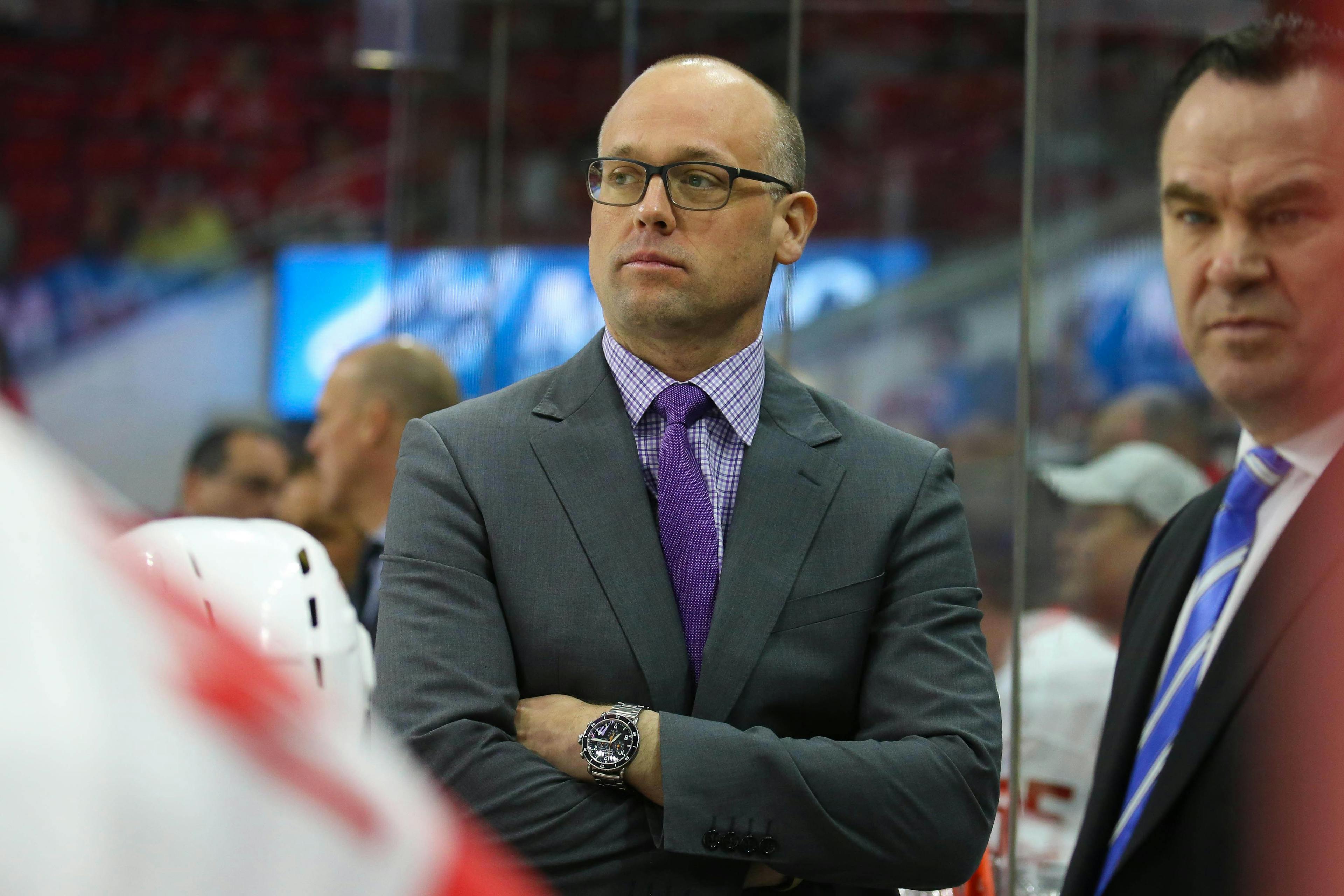
James Guillory-USA TODAY Sports
Jeff Blashill as “the next guy”
Arsene Wenger is still in charge of Arsenal, but will be gone sooner or later. Every game is met with “Wenger Out” banners, chants, and literal protests. There’s a vocal enough contingent of the fanbase that respects Wenger, but wants him gone all the same. Some say he’s just waiting the season out, but others think he’s signing a one or two-year deal to stick around. The team’s board of directors seems to have given him an awfully long leash. No other manager in the Premier League has been with their team since longer than 2012.
Mike Babcock probably got out of Detroit at the right time, a luxury Arsene never took the chance to have.
Following in the footsteps of a legendary coach is one of the toughest things to do. It’s even tougher when you’ve never coached at the top level before.
You’ll never get another Mike Babcock in Detroit. He’s gone, now. Or if you do get him back in Detroit, he’ll be coaching for another NHL team. Let’s get real, nearly everyone in Detroit would have kept Mike Babcock in a heartbeat if he wanted to stay. But he chased the idea of a young team on the rise rather than an older team on the fall. Maybe his decision was a bit about the pretty contract 8-year, $50 million dollar deal, too, but there’s an authenticity to believe he’s about more than the money. After all, he allegedly turned down a larger offer from Buffalo to go to the Leafs.
Jeff Blashill, at best, is okay as an NHL coach. We’ve seen two seasons of his work. He made the playoffs with an average roster, but didn’t really challenge to win a series. He was lauded for that, and ribbed this past year for poor roster and lineup decisions and the inability to ice a competitive hockey team.
Jeff Blashill will never be Mike Babcock. And whoever follows Arsene Wenger, will likely suffer from the same syndrome. How do you replace that?
When Sir Alex Ferguson left Manchester United, his replacements in David Moyes and Louis van Gaal were never able to live up to his legacy. In the four years since he left, Manchester United has never made a serious title challenge. His current counterpart in Jose Mourinho has things looking upwards, but it’s still an uphill battle in an increasingly competitive Premier League.
The transfer policy vs. Red Wings player acquisition
There’s one key difference here. Arsenal, like other professional soccer clubs, does not typically “trade” players for other players or draft picks, but instead for cash. Old contracts are quickly ripped up and new ones signed when a player is bought from one team for another. Though there is a spending cap proportionate to team revenue, there’s no salary cap, and thus teams with a larger fanbase (and more money) like Arsenal are able to buy better, more established players.
Since their last championship-quality roster, neither has launched massive moves that would deem them to be chock full of superstars.
Arsenal has had its fair share of names come through even the most casual of soccer fans should know. Thierry Henry, Robin van Persie, Cesc Fabregas and Dennis Bergkamp all thrived under Wenger. Arsenal infamously constructed “The Invincibles” lineup in 2004, where they went a full 38-game season without a loss.
Detroit, meanwhile, featured names like Steve Yzerman, Sergei Fedorov, Brendan Shanahan and Nicklas Lindstrom.
But if you look at those rosters compared to these rosters, they hardly look in the same league.
Pavel Datsyuk was the Red Wings best player in 2009. Pavel Datsyuk was still, in all likelihood, the team’s best player until he left. Has a single player they’ve brought in since then been close to being a superstar? They were carried this season by an aging Henrik Zetterberg, and even their trio of second-year forwards peaked at just 36 points this year. Tomas Tatar and Gustav Nyquist form decent complementary pieces, but they’re just that.
At Arsenal today, they do have some respectable pieces.
Mesut Ozil is a fantastic talent. Acquired from Real Madrid in 2013, he’s been the leader of their offence. Mixed in with Alexis Sanchez, Santi Cazorla, and Olivier Giroud, Arsenal has quite the formidable offence, the league’s fourth-most potent. But with just two players making the league’s team of the year (the Premier League equivalent of the all-star team) over the past four seasons, it’s clear Arsenal isn’t exactly the class of the league anymore. The scrum-capped Petr Cech was brought in at the start of 2015-16 from rivals Chelsea. He’s a lock to stick out the next few seasons, but at age 34 he’s hardly what you’d call a “franchise” goalkeeper.
Similarly, Detroit has been the go-to spot for years for aging veterans to come. Now, last year’s offseason was a sign that Detroit was perfectly content with what they had, giving out contracts to seemingly anyone who wanted one as long as they’d played for Detroit before. Or, in the case of Frans Nielsen, Thomas Vanek and Steve Ott, even if they haven’t.
These teams have consistently moved backwards simply because they believed they were already good enough.
The future
So what’s the point of all this talk?
Well, both Arsenal and the Red Wings both see murky futures ahead. Few in either fan base wants to admit it, but there are major structural problems that prevent both teams from being truly competitive in the upcoming future.
The Wings were arguably the worst team in the playoffs last year. Pavel Datsyuk is long gone. There are cap concerns. There’s a typically backup-quality goalie on their roster in Jimmy Howard (albeit he had a strong start this year) making starter-calibre money. The list goes on for issues that will hold the Wings back.
In the NHL, you could name at least half the league that’s doing a better job than Detroit right now. And that’s if you’re being optimistic. Detroit’s far from the wrecking force they become known as for so much of the 2000’s, and to be honest, a fairly average team all-around.
Across the pond, the Premier League is seeing the upcoming 2016-17 season as one of its most exciting to date.
After disappointing last year in the league, Manchester City, Manchester United, and Chelsea all brought in world-class managers this season. With four games to go, Chelsea appears poised to win the title, but Arsenal’s biggest rival in Tottenham Hotspur has been the second most powerful offensive and most powerful defensive side in the league this season (they currently sit in second place), as they seek to crack that top-4 status for back-to-back seasons with the league’s youngest average age.
Third-place Liverpool is on the come-up under world-renowned passionate manager Jurgen Klopp, and even teams such as Everton, Southampton, and Stoke City (just to name a few) will be putting pressure on the so-called “big clubs” in the future. A team like Arsenal is likely too big, and too good to fall out of remaining competitive forever, but falling to fifth, sixth, or even seventh place for another season or two isn’t out of the question when you consider all the variables that are coming to play.
2004, 2008. 9 and 13 years apart. Distant dates that are sure to last at least a few more seasons. If either team is winning it all next year, they’re going to be one heck of a surprise.
If there was a year for the Champions League qualification and NHL playoff streaks to both end, 2017 seems increasingly likely to be the one.
The thing is, it doesn’t have to be this way. Both teams have (or had) the resources and the personnel to build a competitive roster. Both teams have passionate fanbases who care, and competent management who’s done it right in the past. But that’s also the biggest problem – a failure to adapt to a new era, and sticking with a mentality of stability instead of one of progress.
If you look at either Ken Holland or Arsene Wenger, many will tell you they’re the best hire the team’s ever made. They’ll probably also tell you it’s time for both to go, but both have been held on from an upper ownership group that doesn’t want to say goodbye.
The lesson is: when you’re simply happy with what you’ve got, it’s no surprise when your teams aren’t are the ones that are successful. Until the two red and white franchises really figure this out, those championship memories will remain just that.
Recent articles from Adam Laskaris

